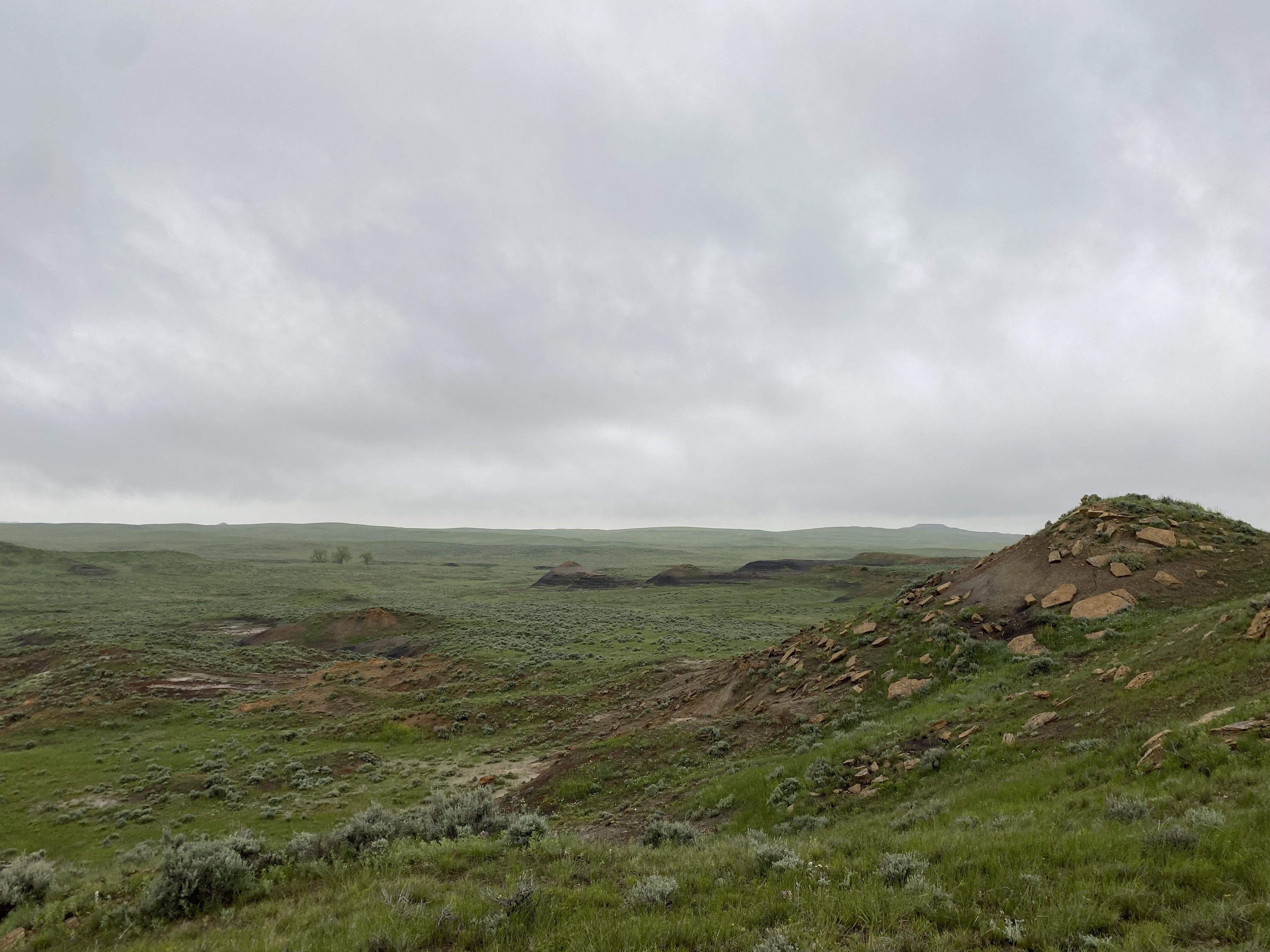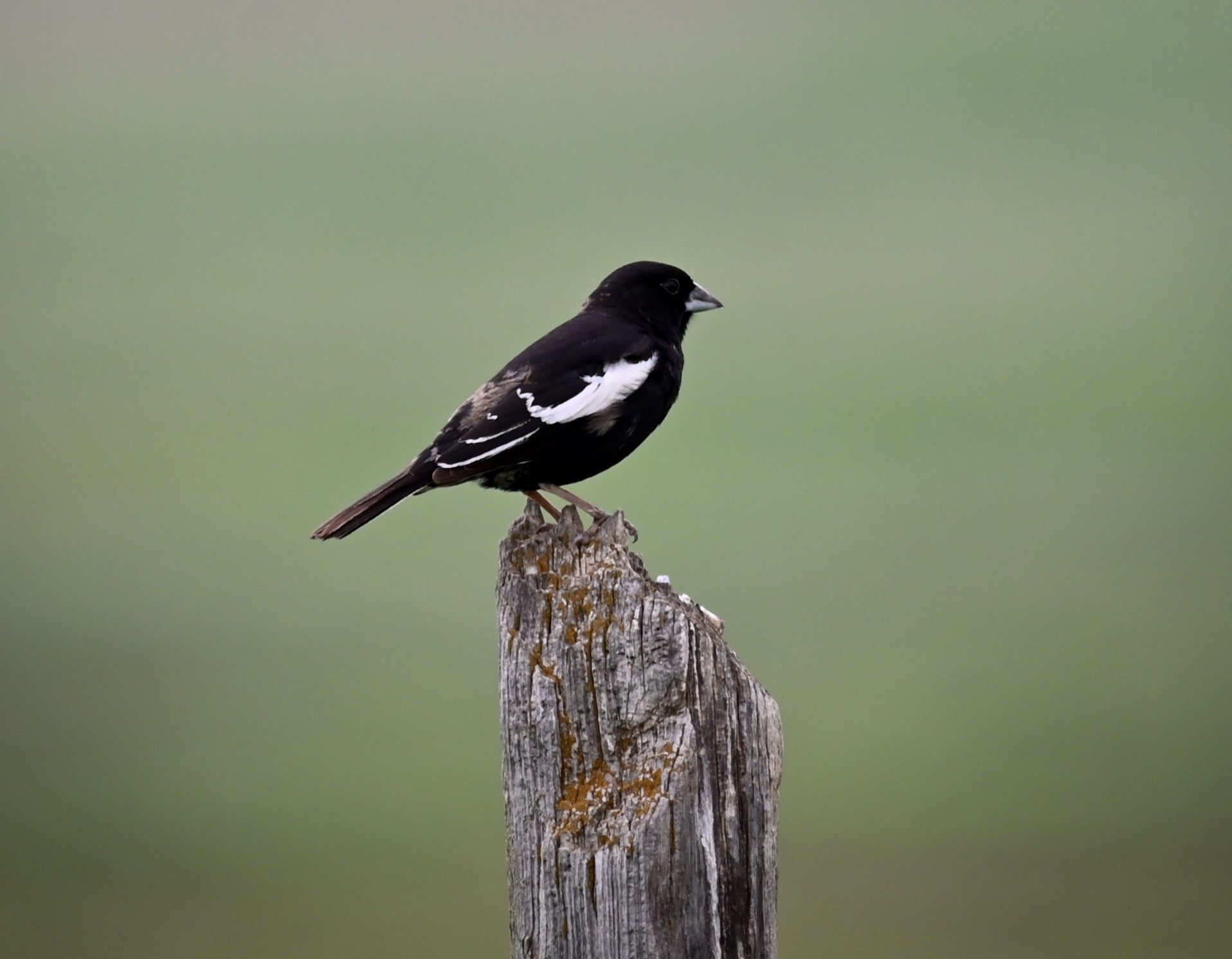Grassland Avian Survey Technician (WWF) in the Northern Great Plains
NOTE: this is an inactive job posting from a previous season. We often hire for similar projects each year, so this offers an example of the type of work that may be available for our upcoming field season. Please check our most recent job postings as well as the TAMU job board for our current offerings. We typically begin posting summer positions in late December or January.

GRASSLAND AVIAN SURVEY TECHNICIAN (4) needed for a study of breeding landbirds on a collaborative ranching conservation program in eastern Montana, western Nebraska, north-eastern Wyoming, and north-western South Dakota. The field effort is in partnership with the World Wildlife Fund’s Northern Great Plains Sustainable Ranching Initiative (WWF-SRI). The Northern Great Plains (NGP) is one of the few intact temperate grasslands left in the world, and provides critical habitat for a cohort of bird species that have shown steep declines in recent years. Technicians will support a collaborative effort between Intermountain Bird Observatory, World Wildlife Fund, and local ranchers to collect breeding landbird data on program-enrolled ranchlands. Data will inform WWF ecologists, and participating ranchers in grassland conservation practices that promote bird-friendly cattle ranching in the NGP. Duties consist of conducting standardized avian point count surveys on ranchlands in the NGP. Job includes some vegetation/habitat assessment and data entry. As a field technician on this project, you will serve an important role in the future conservation of our grassland prairie landbird populations, and get the opportunity to observe some of the amazing North American grassland bird species like Thick-billed Longspurs, Long-billed Curlews, Upland Sandpipers, and Sprague’s Pipits. Check out these articles from from a field tech and a field manager who worked on the avian survey program in summer of 2022. It gives a sense of how fun, amazing, and yet inspiringly challenging the job can be; and how important your part would be in helping conserve grassland bird species in the U.S.
Qualifications include:
• Ability to identify 80-100 grassland bird species by sound and sight
• Ability to work independently
• Ability to camp and work early hours, often without phone service or facilities, and change work
sites on a daily basis.
• Ability to navigate using maps and GPS units, and follow directions
• Ability to safely drive rough and sometimes unmaintained roads using an AWD or 4WD vehicle
• Strong physical and mental endurance for long days, with some extensive driving between
surveys
• Ability to be autonomous and problem-solve difficult situations
• Ability to communicate professionally and respectively with local property owners
• Careful and accurate data collection/entry/management. Detailed is a necessity.
• Willingness, and ability to work safely in landscapes occupied by predators and other potential
hazards
• Strong interpersonal and professional skills for communicating and working effectively with
program managers, private landowners, and fellow technicians.
Technicians must have a valid drivers license, proof of auto insurance, and use their personal, AWD/4WD vehicle (work-related mileage will be reimbursed at a rate of ~$0.625/mile), or IBO will provide a rental SUV and paid fuel expenses. Technicians must provide their own camping/backpacking gear, and use their own quality binoculars and laptop computer. (Mac Chromebook or Notebook will not suffice for data entry.)
To Apply:
Email a single pdf document that includes a one-page cover letter describing your interest and qualifications for the position, and your experience with remote and independent work. Also include your resume and three professional references. Please email your documents with “2023 WWF Avian Tech” in the subject line. Interviews will start in Feb and positions will be filled as soon as suitable applicants are found.
